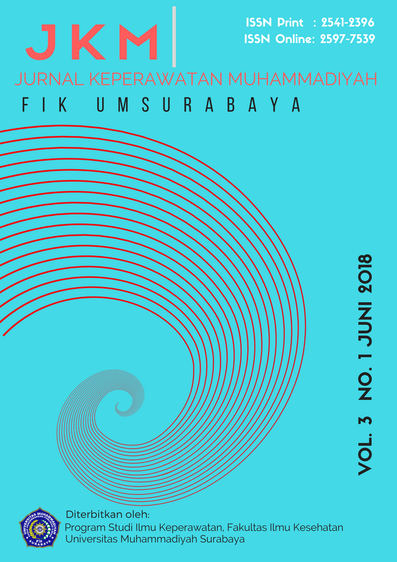Social Capital and Dengue Fever Management In Buang Ngern Subdistrict, Thailand : A Case Study
DOI:
https://doi.org/10.30651/jkm.v3i1.1780Keywords:
social capital, dengue, cohesionAbstract
Objective  to describe the existence of social capital in managing dengue fever in buang ngern subdistrict, Thailand.
Method this study use case study based on the thepry pof social capital as the foundation of the data analysis
Result In the case study on Buang Ngern shows that the community which have high level of social capital could be able to reduce the incidence of dengue fever significantly by cooperating with various sectors, such as; Household Members, Housewife Group, Village Health Volunteers, Local Administrative Organization, Village Committee Health, Health Volunteers And Health Workers In Health Centers. Cooperation which involving several community groups will be difficult to occur in the absence of a high level of trust between groups, social norms and networks among community members.
Conclusion Social capital as one of the features that exist in the community is having advantage if could be used appropriately. In the community based dengue fever prevention and control program which require inter-sectoral cooperation, social capital can become a bridge between groups in giving contribution based on the role and function of each group.References
Castro, M., Sánchez, L., Pérez, D., Carbonell, N., Lefèvre, P., Vanlerberghe, V., & Van der Stuyft, P. (2012). A community empowerment strategy embedded in a routine dengue vector control programme: a cluster randomised controlled trial. Transactions of the Royal Society of Tropical Medicine and Hygiene, 106(5), 315–321.
DeSilva MJ and Harpham T. (2007). Maternal social capital and child nutritional status in four developing countries. Health and Place 13 (2007) 341-355.
Eriksson, M. (2011). Social capital and health – implications for health promotion. Global Health Action, 4. http://doi.org/10.3402/gha.v4i0.5611
Eriksson, M., Dahlgren, L., & Emmelin, M. (2009). Understanding the role of social capital for health promotion beyond Putnam: A qualitative case study from northern Sweden. Social Theory & Health, 7(4), 318–338. http://doi.org/10.1057/sth.2009.6
Folland S. (2007). Does “community social capital†contribute to population health? Soc Sci Med 64 (2007) 2342–2354.
Khun, S., & Manderson, L. (2008). Community participation and social engagement in the prevention and control of dengue fever in rural Cambodia.
Krishna A. (2010). One illness away. Why people become poor and how they escape poverty. New York: Oxford University Press.
Machmud, Rizanda. (2014). Social Mobilization Dengue Hemorrhagic Vector Control and Sustainability in Indonesia. SDS Annual Conference Proceedings
Pretty J. (2003). Social capital and connectedness: Issues and implications for agriculture, rural development and natural resource management in ACP countries. CTA (Technical Centre for Agricultural and Rural Cooperation), working document number 8032.
Putnam, R. (1993). Making Democracy Work: Civic Traditions in Modern Italy. Princeton University Press, Princeton, NJ
Putnam, RD. (2001). Social Capital: Measurement and Consequences. Isuma: Canadian Journal of Policy Research. 2 (Spring 2001):41–51 accessed at www.oecd.org/dataoeced/25/6/1825848.pdf.
Rifkin, SB. (2009). Lessons from community participation in health programmes: a review of the post Alma-Ata experience. Journal of International Health 1, 31–36.
Sanchez, L., Perez, D., Cruz, G., Castro, M., KourÃ, G., Shkedy, Z., … Van der Stuyft, P. (2009). Intersectoral coordination, community empowerment and dengue prevention: six years of controlled interventions in Playa Municipality, Havana, Cuba. Tropical Medicine & International Health: TM & IH, 14(11), 1356–1364.
Suwanbamrung, C. (2011). A model of community capacity building for sustainable dengue problem solution in Southern Thailand. Health, 03(09), 584–601.
Tana, S., Umniyati, S., Petzold, M., Kroeger, A., & Sommerfeld, J. (2012). Building and analyzing an innovative community-centered dengue-ecosystem management intervention in Yogyakarta, Indonesia. Pathogens and Global Health, 106(8), 469–478.
Toledo, M. E., Vanlerberghe, V., Baly, A., Ceballos, E., Valdes, L., Searret, M., Van der Stuyft, P. (2007). Towards active community participation in dengue vector control: results from action research in Santiago de Cuba, Cuba. Transactions of the Royal Society of Tropical Medicine and Hygiene, 101(1), 56–63.
Downloads
Published
Issue
Section
License
- Penulis tetap memegang hak atas karyanya dan memberikan hak publikasi pertama kepada jurnal ini yang secara simultan karya tersebut dilisensikan di bawah:Â Creative Commons Attribution-ShareAlike 4.0 International (CC BY-SA 4.0)













